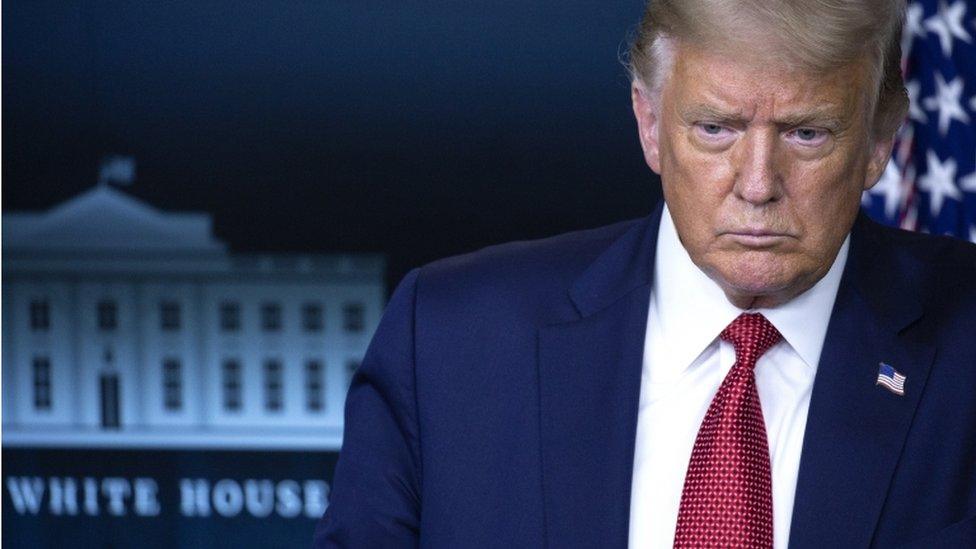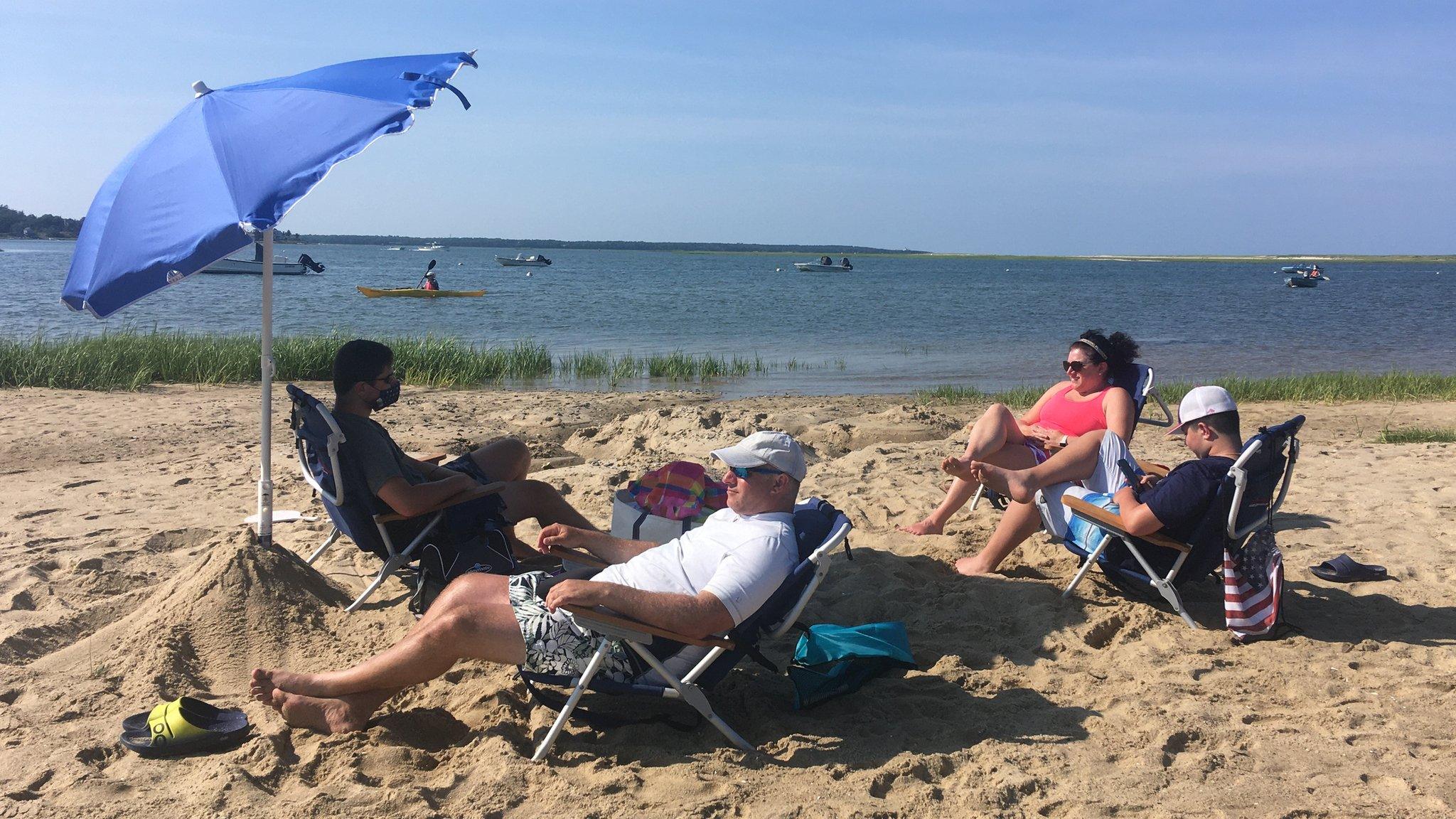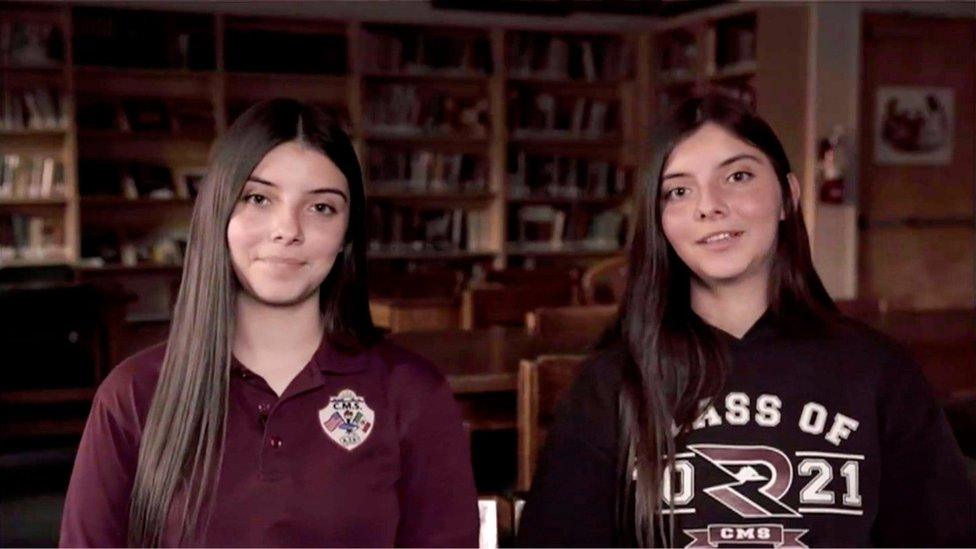Coronavirus: White House weighs plan to keep out US citizens and legal residents
- Published

The US is weighing new rules that would temporarily bar US citizens and legal residents from entering the US to control a surge in coronavirus cases.
US media say the proposal would affect people suspected of having been exposed to or infected with the virus.
President Donald Trump has often touted his travel bans on foreigners as key to curbing the spread of the virus.
But US citizens and lawful residents have so far been exempt from travel restrictions regarding entering the US.
It is unclear whether the proposed measures will move forward.
What's in the draft proposal?
The draft memo, first reported by the New York Times, external, would seek to use public health powers to expand the administration's legal authority.
The proposed rule would affect all entry points, including airports and borders with Canada and Mexico, though it particularly references the virus outbreak in Mexico, according to the Times.
It notes that any order applying to US citizens and permanent residents should protect individuals' constitutional rights and would only apply in "the rarest of circumstances".
Is this legal?
The US Centers for Disease Control (CDC) has the power to detain and examine individuals travelling in and around the US if they are suspected of carrying certain diseases, like tuberculosis or Sars.
It is unclear whether this would legally allow the government to deny entry to citizens or residents, however, or how long they might be prohibited from returning.
The CDC and US Department of Homeland Security did not immediately respond to a request for comment from the BBC.
American Civil Liberties Union Immigrant Rights Project director Omar Jadwat said preventing US citizens from their country would be unconstitutional.
"The Trump administration has rolled out one border ban after another - most recently on children and asylum seekers - using Covid-19 as an excuse, while failing abysmally to get the virus under control in the United States. The rumoured order would be another grave error in a year that has already seen far too many."
How bad is the virus situation in the US?
The US has over five million confirmed Covid-19 cases and 163,500 deaths - the highest in the world, according to Johns Hopkins University. Cases have surged in recent months across states in the southern and western regions as lockdown measures were lifted.
Currently, cases are on the decline in Mexico.
Since March, the White House has used public health laws to limit the number of immigrants entering the US and to deport migrants, including children, at the border.
Mr Trump has sought to partly pin the blame for rising cases in the US on Mexico while defending his push for the nation to reopen.
Discussing the spikes in the southern US at a briefing last month, he told reporters: "We're also sharing a 2,000 mile border with Mexico, as we know very well, and cases are surging in Mexico, unfortunately."
Many Americans living along the US-Mexico border cross back and forth frequently for recreational and commercial reasons. In July, the US ambassador to Mexico said 90% of those crossing the southern border were US citizens or permanent residents.
Non-essential travel has been restricted across the border since March, but it does not apply to those travelling for work, humanitarian aid efforts, medical reasons or family emergencies.
Medical experts have said travel bans do not work in cases where there is already significant community spread, as is the situation in the US.

GLOBAL TRACKER: Where are the world's virus hotspots?
LOCKDOWN UPDATE: What's changing, where?
SCHOOLS: What is school life like now?
THE R NUMBER: What it means and why it matters

- Published5 July 2022

- Published2 August 2020

- Published17 February 2020
